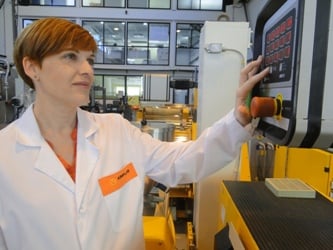R&D plastic: New bioplastics synthesis processes

One of the great challenges currently facing the plastics sector is the development of innovative biopolymers and new processes to obtain them. These processes need to be efficient and result in products with properties similar to traditional plastics, whilst also being capable of competing in price with these traditional plastics.


For this purpose, AIMPLAS, the Plastics Technology Centre, is undertaking the SINTEPOL project, which is co-funded by the ERDF and IVACE. The main objective of the project is to develop new biopolymer synthesis and modification routes in a single stage by means of reactive extrusion processes. In this way, real and competitive production processes for biopolymers can be achieved in the future, enabling such products to be sold on the market.
A specific aim is to increase knowledge of reactive extrusion processes and the introduction of chemical modifications in biopolymers, with a view to improving their mechanical properties and obtaining materials suitable for highly demanding applications, whilst providing high added value in competition with conventional plastics.
Work on the SINTEPOL project in 2014 focused on improving the plasticity and thermal resistance of biopolyesters. Two approaches were adopted for the purpose of enhancing the plasticity of PLA: one was through plasticisers derived from fatty acids by means of reactive extrusion processes, and the other was through the synthesis of new plasticisers in order to make them fully compatible with PLA.